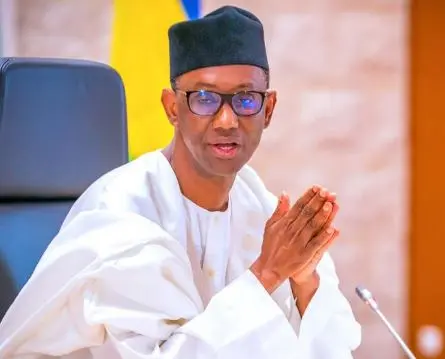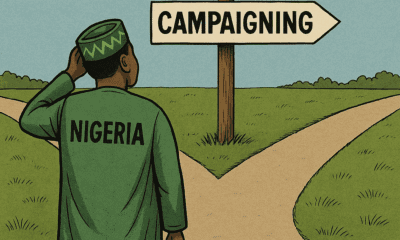Breaking News
Nigeria’s Rising Killings: North Leads Grim 2025 Toll as Ribadu Vows Crackdown on Extremists
Over 5,400 people have been killed in Nigeria in the first eight months of 2025, with the North topping the death toll. NSA Nuhu Ribadu vows to crush extremists after the arrest of Ansaru leaders Abu Baraa and Mamuda, even as massacres in Borno, Plateau, Benue, and Edo deepen the crisis.

In just eight months of 2025, Nigeria has recorded a shocking surge in killings, with violent attacks spreading across nearly every region of the country. From the North-East to the Middle Belt and down to the South, communities have become battlegrounds for insurgents, bandits, gunmen, and armed herders—leaving thousands dead and countless displaced.
The latest wave of violence saw at least 102 people killed last week alone, including civilians, security personnel, and suspected bandits. National Security Adviser (NSA), Nuhu Ribadu, condemned the bloodshed as “unacceptable,” pledging stronger deployments and improved intelligence.
Yet, amid the gloom, security forces scored a major breakthrough: the arrest of two top leaders of ANSARU, Nigeria’s Al-Qaeda affiliate.
Ribadu Confirms Arrest of Ansaru Leaders
Ribadu announced the capture of Amir Mahmud Mohammed Usman (aka Abu Baraa), Ansaru’s self-proclaimed Emir, and his deputy, Amir Mamuda, during targeted operations between May and July 2025.
“These two men have been on Nigeria’s most-wanted list for years,” Ribadu said. “Their capture marks the most significant blow against ANSARU since its formation.”
According to him, the duo masterminded several high-profile attacks, including the 2022 Kuje prison break, the 2013 abduction of French engineer Francis Collomp, and the 2019 kidnapping of Magajin Garin Daura, Alhaji Musa Umar Uba. They were also linked to the Emir of Wawa’s abduction and maintained ties with jihadist groups across Mali, Niger, and Burkina Faso.
Mamuda, Ribadu revealed, trained in Libya under foreign jihadist instructors between 2013 and 2015, specializing in weapons and IEDs. The arrests, he stressed, have “decapitated Ansaru’s central command” and yielded valuable intelligence now under forensic analysis.
Violence Across States
Despite the breakthrough, killings persist nationwide:
- Borno State: At least 60 villagers in Bama LGA were massacred in a night raid by Boko Haram factions. Survivors said attackers accused residents of aiding security forces before torching homes. A month earlier, a female suicide bomber struck a Konduga restaurant, killing up to 24.
- Katsina State: Seven people were killed when bandits raided Magajin Wando village. Community Watch Corps volunteers repelled the attack but were ambushed while evacuating the wounded.
- Benue State: More than 40 villagers were slaughtered in May and June raids across Guma LGA. Governor Hyacinth Alia described the assaults as “systematic ethnic cleansing.”
- Plateau State: Over 200 people have been killed since June in attacks across Mangu, Bokkos, and Riyom. Governor Caleb Mutfwang called the violence “orchestrated genocide.”
- Sokoto State: Gunmen killed three in Baraya village, while locals in Tangaza LGA summarily executed 16 suspected bandits after capturing them, underscoring eroded trust in state security.
- Edo State: Heavily armed kidnappers ambushed an NSCDC convoy in Okpella, killing eight officers and abducting a Chinese expatriate. Civil groups slammed the state’s muted response.
Grim Statistics
Independent analysis paints an even darker picture. A report by SBM Intelligence revealed that between January and August 2025, at least 5,450 people were killed in violent conflicts nationwide.
Breakdown of deaths:
- Civilians: 2,740
- Security personnel: 420+
- Bandits: 1,120
- Boko Haram/ISWAP fighters: 690
- Vigilantes: 230
- Cultists: 110
- Kidnappers: 120
Regionally, the North-West led with nearly 1,800 deaths, followed by the North-East (1,600). The Middle Belt and North-Central recorded 950 and 540 respectively, while the southern zones collectively saw 560.
SBM warned that Nigeria’s insecurity is no longer regional but national, spreading from insurgency and banditry to kidnappings and communal clashes.
Calls for Action
Reacting to the spiraling bloodshed, Labour Party’s 2023 presidential candidate, Peter Obi, urged a “national war on insecurity.”
“When over 100 Nigerians are killed in a single weekend, our casualty figures rival those of countries officially at war,” Obi said. “It’s time to mobilise every resource, every agency, and every state to reclaim our nation from lawlessness.”
Governance Failure and Human Cost
Analysts blame governance failure at both federal and state levels for the crisis, citing overstretched security forces, ignored early warnings, and weak justice systems. Vigilantism and mob justice are on the rise, feeding a cycle of violence.
The toll extends beyond lives lost: farms lie abandoned, schools shuttered, markets deserted, and displaced families crowd into camps. Communities are left to mourn and rebuild with little or no support.
While government continues to condemn attacks and launch military operations, the gap between Abuja’s rhetoric and on-the-ground realities remains glaring.
For many, the question is no longer just how to stop the killings—but whether Nigeria can still guarantee the most basic right of its people: the right to life.










